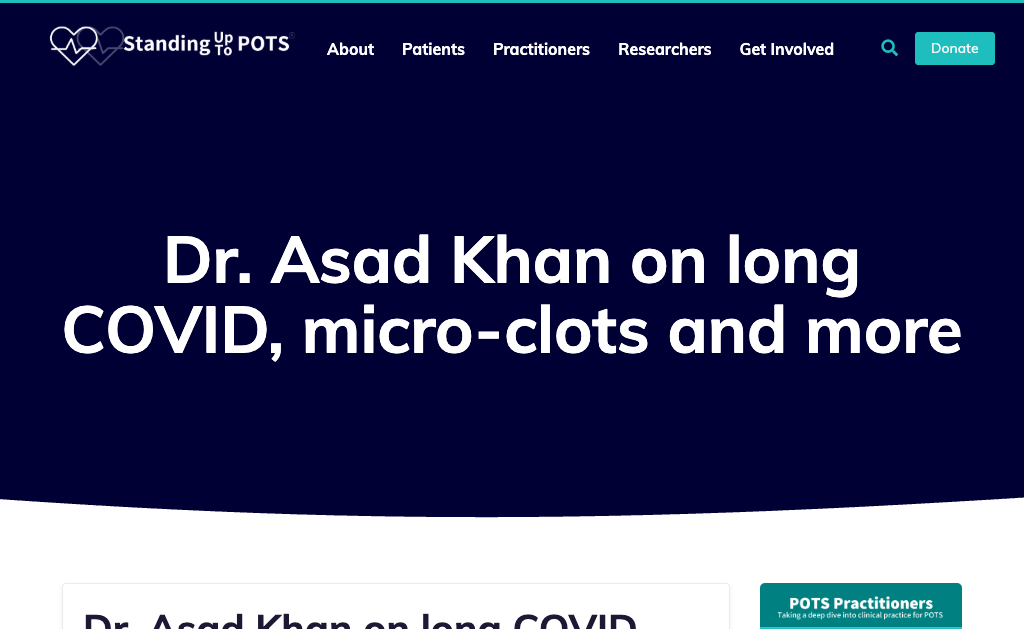Dr. Asad Khan on long COVID, micro-clots and more
Pulmonologist-turned patient advocate Dr. Asad Khan recounts developing severe long COVID with POTS and describes major care gaps around diagnosis and treatment. He emphasizes that strict numeric tilt-table cutoffs miss many patients and urges symptom-driven diagnosis of orthostatic intolerance using office tests (active stand/NASA lean), with treatment started even if criteria aren’t met. He highlights research showing hypercoagulability and microclots in long COVID (and possibly in some POTS), explaining why D‑dimer can be normal, the rationale behind multi‑pathway antithrombotic regimens (not a recommendation), and his mixed personal response to apheresis and anticoagulation under expert supervision. Proposed mechanisms include persistent clotting, immune dysregulation/autoimmunity, mast cell activation, viral persistence, and gut dysbiosis. Practical POTS care includes salt/fluids, compression, smaller meals, and low‑risk medications (e.g., beta‑blockers, midodrine, fludrocortisone, pyridostigmine; H1/H2 blockers for MCAS). He advocates for transcranial Doppler to assess cerebral blood flow, cautions about risks of unsupervised anticoagulation, and calls for clinician flexibility beyond RCT‑only mindsets, noting a Delphi consensus on long COVID evaluation/management. The episode also covers access barriers, reinfection risks, and the human toll, while pointing to ongoing microclot research and the need for patient‑centered, risk‑aware trials and care.
